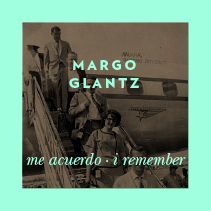Place: Eduardo Halfon
We asked Eduardo Halfon to write about an especially intriguing place he'd visited. He sent us this brief text on Mleczny Familijny, a classic Polish café.
The Great Mathematics of Socialism
Photos submitted by author
Bar Mleczny Familijny. That’s what I saw, painted in golden letters on the glass of the front door. Milk bar, I remembered having read somewhere before traveling to Warsaw. Classic Polish cafés. Very communal. Very cheap. Remnants of another time, of a more austere, less globalized time. I was still standing on Nowy Świat street –New World, in Polish, I’d find out later– freezing in the premature night, and seeing the clients and diners through the huge window: most of them also remnants of another time. Their last bastion, I thought. Their last oasis of that old world, I thought, right in the middle of this very strange and very new world. Everything inside glowed white in the night. Everything seemed warm, and comfortable, and delicious. I could see that the menu, on a wall, was written only in Polish. Suddenly a pair of young people went in. I took advantage of their impetus and went inside with them.
The line moved quickly. First to the window where a red-haired woman took orders and payment, all without a single expression on her face; and then toward a second window that opened onto the kitchen, and through which one received the dishes. I tried to read the huge menu written on the wall, but I couldn’t decipher or recognize any of the names. We kept moving forward. In front of me, the two young people were taking off their gloves and scarves and hats and getting ready to order. I turned to look at the tables and noticed that everyone ate in a hurry, in silence, with almost mechanical movements and gestures. Perhaps they enjoyed their dinner, but they seemed intent on not showing it. The couple finally arrived at the first window. They ordered their dishes and paid the lady. It was my turn. It was my time. I didn’t know what to do, nor what to ask, nor what to say. I approached the couple and asked them if they spoke English. A little, the guy said, and I felt less nervous. I asked him if he could order for me. He stared at me, perhaps confused, and I felt the growing anxiety of the old people behind me waiting their turn, and I was close to shouting to the guy to please hurry up, that I was hungry. But fortunately I only told him I didn’t speak Polish. He consulted with his partner. Both had shaved heads, black outfits, tattoos on their arms and necks and piercings in their lower lip. But what do you want? I answered that I wanted anything, that he should decide, that the usual. A soup? Yes, a soup. And maybe a kielbasa? Yes, a kielbasa too. And a black tea? Yes, thank you, a black tea, and I heard how he ordered everything from the red-haired woman of the first window. I also ordered a dessert for you, he said. You’ll like it, he said. Naleśniki z serem, that’s what it’s called, and he smiled. I thanked him again and they moved forward a couple of steps to the next window. The red-haired lady said something to me that I didn’t understand but which I guessed was the amount I owed her for my dinner. I handed her some bills, some zlotys, and she, always sparing, and expressionless, and as dull and automatic as her old cash register, handed me my change.
I sat between two old Poles. I thought both looked a bit like my Polish grandfather. I tried not to see them as traitors, not to judge them as traitors, not to condemn all old Poles of being forever traitors. I tried unsuccessfully to forget the words of my grandfather. And warming up as I ate dish after dish (the best: that dessert, which turned out to be a Polish version of crepes or blintzes), I finally understood that my whole dinner had cost a little less than two dollars. The great mathematics of socialism.
Other entries:
[Pilar Quintana]
[Mercedes Cebrián]
[Wilmer Urrelo Zárate]
[Ronaldo Menéndez]
The Great Mathematics of Socialism
Photos submitted by author
Bar Mleczny Familijny. That’s what I saw, painted in golden letters on the glass of the front door. Milk bar, I remembered having read somewhere before traveling to Warsaw. Classic Polish cafés. Very communal. Very cheap. Remnants of another time, of a more austere, less globalized time. I was still standing on Nowy Świat street –New World, in Polish, I’d find out later– freezing in the premature night, and seeing the clients and diners through the huge window: most of them also remnants of another time. Their last bastion, I thought. Their last oasis of that old world, I thought, right in the middle of this very strange and very new world. Everything inside glowed white in the night. Everything seemed warm, and comfortable, and delicious. I could see that the menu, on a wall, was written only in Polish. Suddenly a pair of young people went in. I took advantage of their impetus and went inside with them.
The line moved quickly. First to the window where a red-haired woman took orders and payment, all without a single expression on her face; and then toward a second window that opened onto the kitchen, and through which one received the dishes. I tried to read the huge menu written on the wall, but I couldn’t decipher or recognize any of the names. We kept moving forward. In front of me, the two young people were taking off their gloves and scarves and hats and getting ready to order. I turned to look at the tables and noticed that everyone ate in a hurry, in silence, with almost mechanical movements and gestures. Perhaps they enjoyed their dinner, but they seemed intent on not showing it. The couple finally arrived at the first window. They ordered their dishes and paid the lady. It was my turn. It was my time. I didn’t know what to do, nor what to ask, nor what to say. I approached the couple and asked them if they spoke English. A little, the guy said, and I felt less nervous. I asked him if he could order for me. He stared at me, perhaps confused, and I felt the growing anxiety of the old people behind me waiting their turn, and I was close to shouting to the guy to please hurry up, that I was hungry. But fortunately I only told him I didn’t speak Polish. He consulted with his partner. Both had shaved heads, black outfits, tattoos on their arms and necks and piercings in their lower lip. But what do you want? I answered that I wanted anything, that he should decide, that the usual. A soup? Yes, a soup. And maybe a kielbasa? Yes, a kielbasa too. And a black tea? Yes, thank you, a black tea, and I heard how he ordered everything from the red-haired woman of the first window. I also ordered a dessert for you, he said. You’ll like it, he said. Naleśniki z serem, that’s what it’s called, and he smiled. I thanked him again and they moved forward a couple of steps to the next window. The red-haired lady said something to me that I didn’t understand but which I guessed was the amount I owed her for my dinner. I handed her some bills, some zlotys, and she, always sparing, and expressionless, and as dull and automatic as her old cash register, handed me my change.
I sat between two old Poles. I thought both looked a bit like my Polish grandfather. I tried not to see them as traitors, not to judge them as traitors, not to condemn all old Poles of being forever traitors. I tried unsuccessfully to forget the words of my grandfather. And warming up as I ate dish after dish (the best: that dessert, which turned out to be a Polish version of crepes or blintzes), I finally understood that my whole dinner had cost a little less than two dollars. The great mathematics of socialism.
Other entries:
[Pilar Quintana]
[Mercedes Cebrián]
[Wilmer Urrelo Zárate]
[Ronaldo Menéndez]








